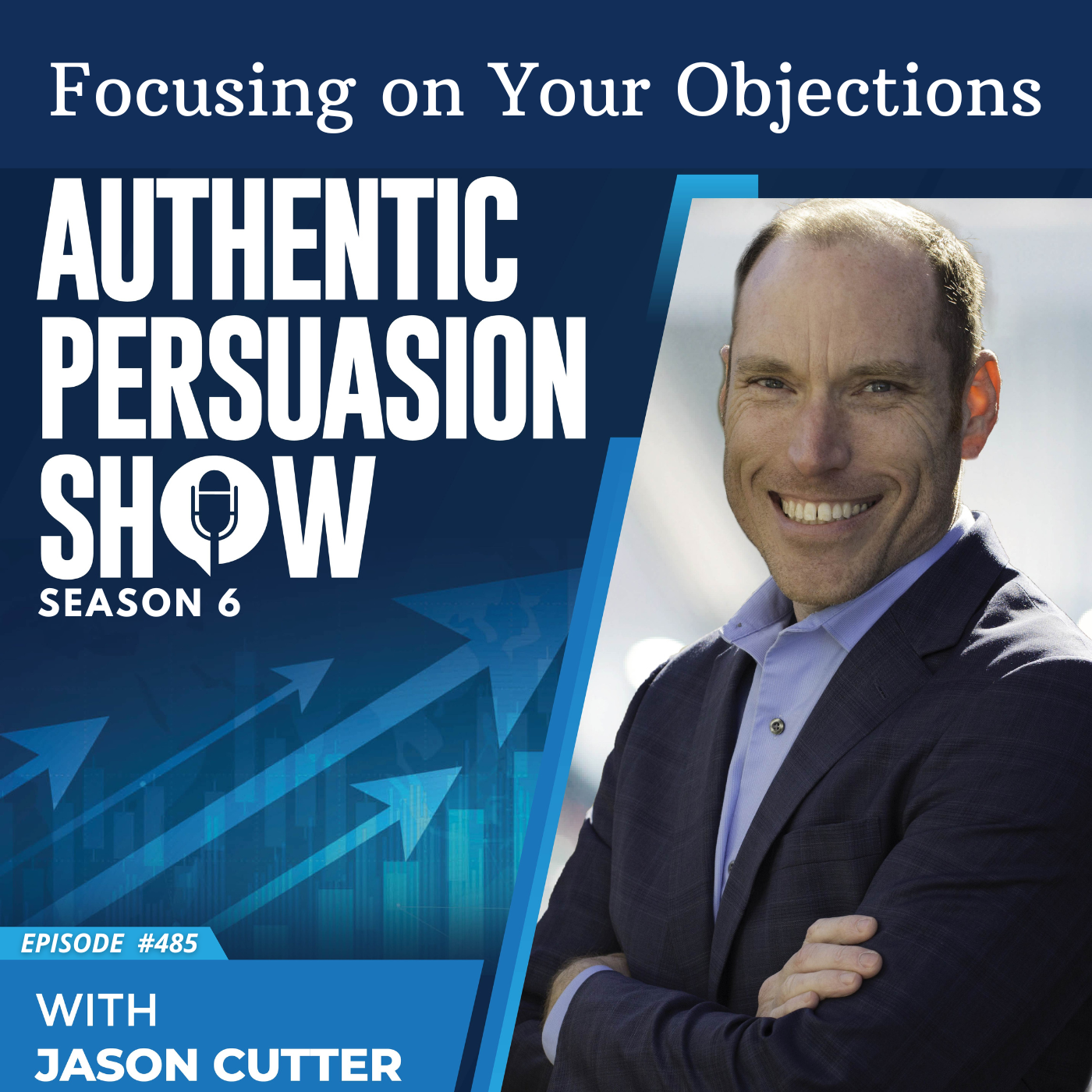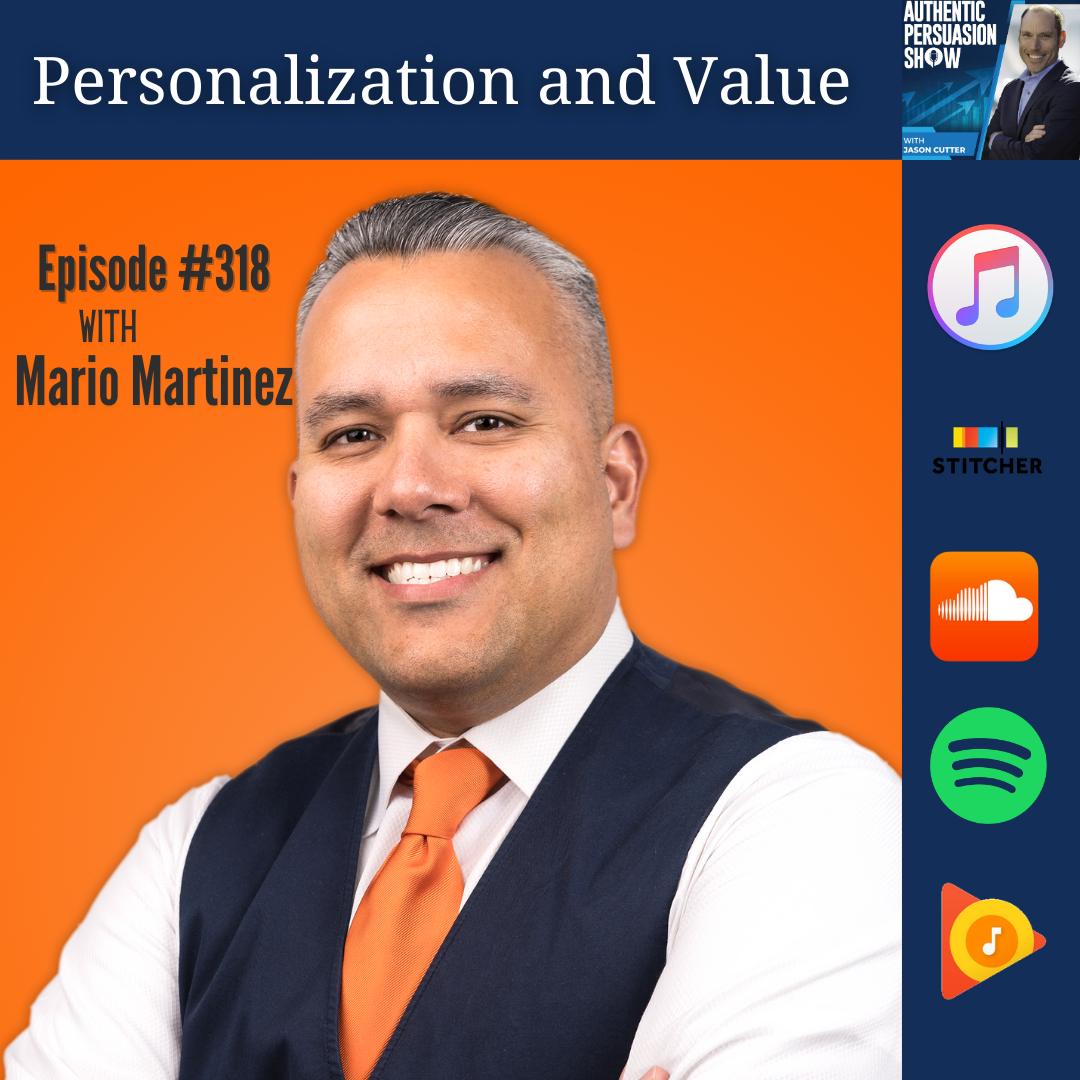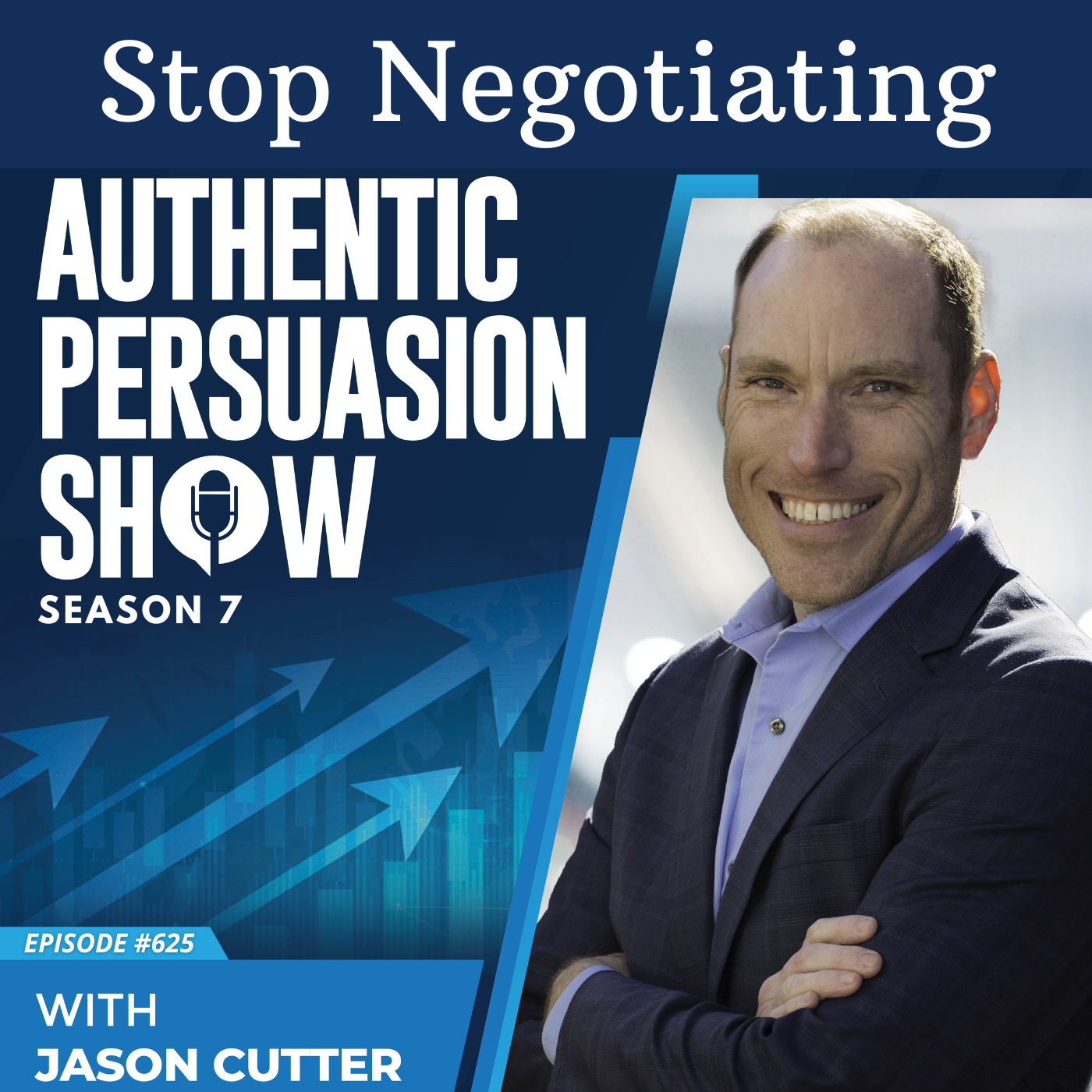Episode Transcript
Paul Smith: So if you're not selling something that you, I think can be. Proud that you're selling and that you believe will help people. Maybe should you not sell that thing? A hundred percent.
Jason Cutter: I think you either A, reflect on it and see if maybe you shouldn't be selling that thing.
If you truly don't see how it can benefit your customers or how you benefit your customers by being the one that helps them. And the reason why I say it that way is because not everybody is selling. The cure for cancer or a business saving tool or a life saving or a financial saving kind of system.
Sometimes you might be selling a TV. But can you be the one who will sell them the right TV that they need and want for the right reasons because that's what they need, not just for your commission or the car. And then I also put it on somebody is that if you don't believe in it enough to sell it. And you're not effective at selling it.
They're just going to go down the street and buy it from somebody else. And what are their intentions going to be, which is always dangerous because then you never know what they're going to be motivated by. But I think that's important. The first one is do you believe in what you're selling, whatever it is?
Again, it could be a TV for all I care, but do you believe in it and do you value it and see that they can have value? And then if you can't answer that, go find something else to sell. And if you still can't find something else to sell, and that's just a pattern with you, it's just get out of sales. Yeah.
Paul Smith: Like I can imagine with choosing what it is that you're selling. If you don't think that you're making their world better by buying it, you're not going to be a very good salesperson. How could you make an honest argument? Yeah. Okay. Lovely. So let's pivot now to the second sales lesson that I wanted you to tell us about.
And this one is about how many options you should present to a prospect. Tell us about what happened and let us learn this lesson with you.
Jason Cutter: It's interesting because it was many years ago and I can still literally picture what happened, the feeling that it happened and then the light bulb that went off when I finally realized it.
So I was in the mortgage business, my very first sales job, which we can get into it or not. If you want me to go into, we can talk about background, but it was my first sales job, 27 years old, 2002 in the mortgage business, which was in Seattle. In Washington, mortgage business is going nuts. It's super easy to show up and answer the phone sometimes.
And you can do really well in sales. And I was taught to have face to face conversations as quickly as possible. Somebody calls in, meet with them face to face, build relationship, trust, get to know what they need, and then go through all that information. Me being at. analytical person. My default response, because this is how I like to buy, is that I wanted to make people feel safe and feel like they could trust me and feel like they were making the decision to buy versus me selling them something in my own motivation.
So what I like is lots of choices. I want the right choice. I want a lot of information. I want to see all the brochures and I want to pick my choice instead of being persuaded or manipulated or talked into what The salesperson thinks I should buy. So I extended that golden rule to my customers, to my prospects.
And so I would put together all the options. I would go through my questions, my discovery and get the application. And then I would just give them like 10 choices on a spreadsheet and I would print it out all nice formatted. And I'd say, okay, here's this option with this loans. With these first and second with this.
And at the time there was just a ton of options, adjustable rate, fixed mortgages, 15 years, all these different things. And I would literally give them the sheet. I'd be proud of it. Like a kid that's given their parents, their their artwork they made in class. And I thought, okay, this is great because they'll be excited.
And then what I found out is pretty much everybody responded with, let me think about it, we'll get back to you. And then I would never hear from them again, or they would do something else or nothing at all. And what I realized. with somebody who was working with me. He finally he said, I don't know what you're missing because this should be way easier.
He sat in on one of my meetings and he saw me pull out the spreadsheet in horror going, Oh my gosh, that's what you're doing wrong. And he was on the other end of the spectrum, which is, I don't want any choices. I just want to know what's best, as a customer. And so he sold that same way as a professional whose job is to.
Consult and then, prescribe and diagnose. And so he saw that he was like, that's it. That's why you're. And so from that moment on, I took all of this information and I saw my duty to the prospect as that professional who says, here is the one or two options based on what you told me. That is still best for your situation, but I've narrowed it down because despite what people think that they want choice and we like free will and we like free choice.
We don't, our brains don't. People don't like it. They like a couple of options, the illusion of control, and then trusting that what you're prescribing is the right way to go.
Paul Smith: Yeah. So I'm assuming you didn't make that sale in that call.
Jason Cutter: No, not at all.
Paul Smith: No. Yeah. And you think the reason why was exactly what he said, that you just offered too many choices.
Jason Cutter: 100 percent because from that moment on, when I had those meetings, I gave them two or three at the most options with my suggestion of what made the most sense based on what they told me, which is you're a young couple buying a condo. your very first home. Here's what you should do. Here's all the options.
Here's what I think is best for you. And here is why based on what you told me, and then let's move forward. And then that was a much different result.
Paul Smith: Yeah. And probably it wasn't. Here's all the options here. Here's the few best options. Yeah. I don't know if you've read it, but there's a fabulous book.
I think it's called the paradox of choice by Barry Schwartz. So he's a behavioral economist and he did this study where he. went into grocery stores and, got permission and he set up between the checkout counter and the door. So on the way out, people would walk past this table, like where the girl scouts would sell you their cookies, and he's got this table there and he set up and he was selling.
Jelly, strawberry, grape jelly, whatever. And he tried it in all these different stores with different numbers of flavors of jelly. And to see which ones would sell the most, depending on how many he had on offer. And I can't remember the exact details of it, he'd like it just, if you just had one.
He would sell X number, but if he had two, he would sell, a different number and three and four. And, he went all the way up to selling 10, 15, 20 different flavors of jelly and the more options he put out. The fewer his total sales were right now, I think two and three might've been better than one, but it very quickly turned into negative returns, like adding a fourth and a fifth, not only do those two flavors not sell very well, but it cuts your sales of the first more than, so now you're selling fewer jelly, fewer jars of jelly in total.
Just because of the decision burden that people have, I don't know, there's 15 jellies here, I don't know which one's best, I don't want to try all of them, so I don't want to buy the one that's not going to be the best, so I'm just not going to buy one. It makes sense in retrospect, right?
Jason Cutter: It does. And in, again, like I said, like we think we want lots of choices.
We want to have the feeling of the freedom of getting to pick. So you go to the grocery store and you see all of the jellies or the peanut butters or the cereals. And you're like, this is great. I have the choice. I can pick what I want. And then you stare at it and go, Oh my gosh, which one do I pick?
Or you go to buy a television. Like I brought that up earlier. And you just look at this wall of TVs at the electronics store or on Amazon. And you're like. Holy crap. Where do I even start? This is ridiculous. Like I don't even know where to pick. And so our brain wants to be safe and be smart.
And so it's better to do nothing than something. So you pick nothing. And you see a lot of salespeople that do that. They fall more on the. spectrum of an order taker, which is something I've been noticing a lot over the years and the term that I use to help people understand where they're at and versus where they could be as a salesperson, right?
They have a title of a salesperson, but they're really operating like an order taker. They're presenting lots of options. They're giving lots of info and then they're sitting back waiting for someone to hand them money and they think, okay, this is great. I'm going to give somebody a ton of choices. You just let me know because I don't want to pressure you because that's what bad salespeople do instead of.
Here's my diagnosis. Let me give you some good advice because I'm a professional. And then let's go on this journey together, right?
Paul Smith: You as the salesperson should know more about what they need than they do. So the buyer is the expert on the problem. The salesperson should be the expert on the best solution, right?
Jason Cutter: And I think what's interesting too, is that a lot of times the buyers. are also not an expert at the problem. They don't really know it. Sometimes they don't, they know what they're dealing with and struggling, but they don't know the problem as well as they could, especially depending on who it is and how they live their life, is their head could be so far in the sand that they don't really see that they have a problem.
So part of sales professional life sometimes is helping someone actually see that they have a problem first and then seeing what the solution is. Good point. That's it for another episode of the Sales Experience Podcast. Thank you so much for listening. If you find yourself on iTunes, can you leave the show a rating and a review?
It helps other salespeople and sales leaders find the show. And please subscribe to the show and share episodes you find valuable with anyone you know in sales. Help me on my mission of changing the way sales is done. And if you're ready to work together, go to jasoncutter. com. Again, that's jasoncutter.
com. To find out how I can help you or your company create scalable sales success. I will see you on the next sales experience podcast episode. And keep in mind that everything in life is sales and people will remember the experience you gave them.
![[Replay] Sell With A Story, with Paul Smith](https://episodes.castos.com/salesexperiencepodcast/images/Sell-with-A-Story.png)


